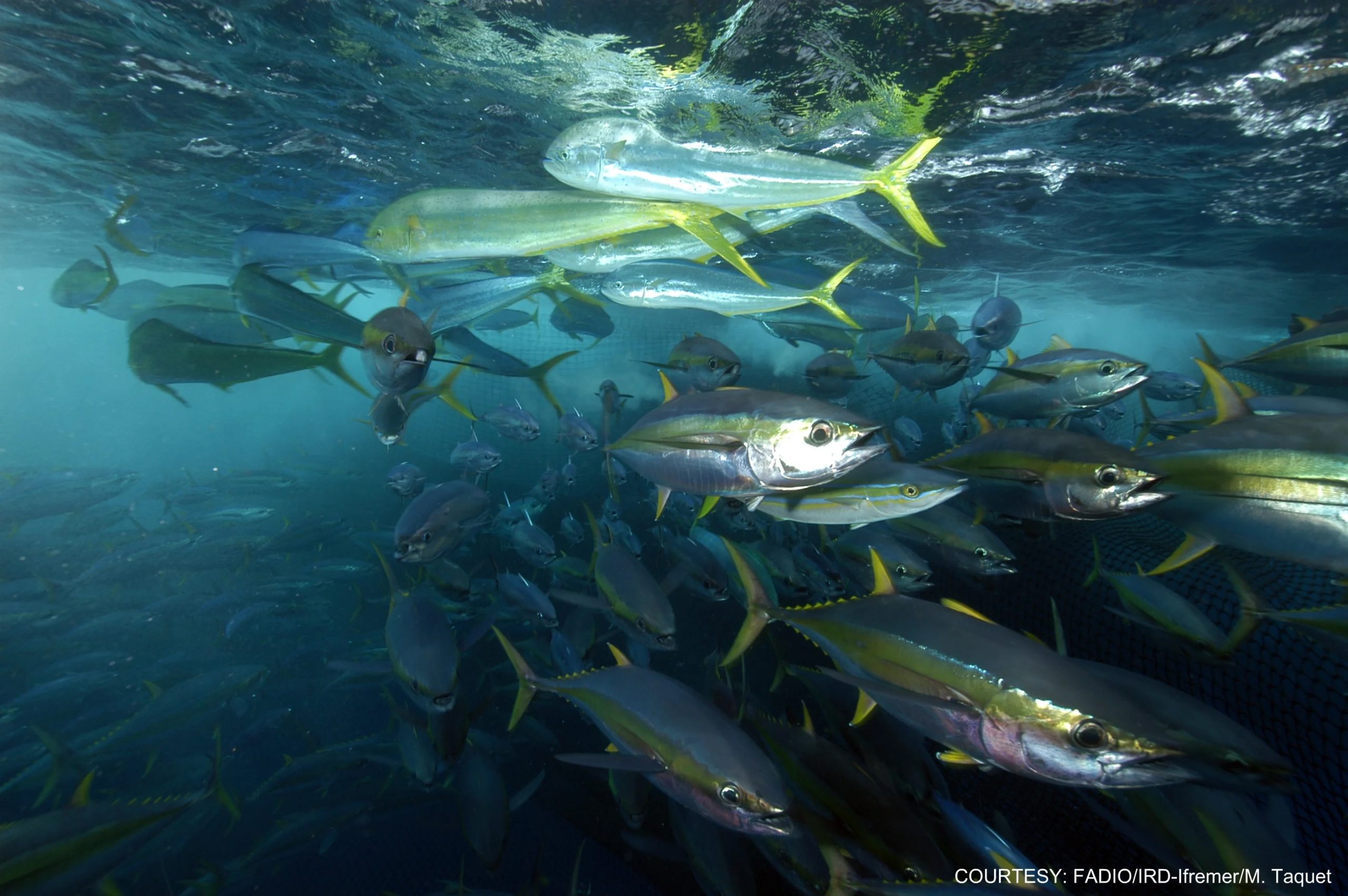30 août 2024

As the Inter-American Tropical Tuna Commission (IATTC) annual meeting on September 2-6 approaches, key proposals will take center stage, potentially shaping the future sustainability of vital fish stocks in the Eastern Pacific Ocean (EPO). Central to these discussions are harvest strategies—science-based management procedures that are critical for ensuring the long-term health and resilience of our fisheries. The decisions made at this meeting will not only influence the future of fisheries management in the EPO, but also set the stage for addressing challenges like climate change in the region. Therefore, a proactive stance on several key proposals becomes critical.
For several years, the IATTC Scientific Advisory Committee (SAC) has recommended the creation of a formal dialogue group to guide the management strategy evaluation (MSE) process for IATTC stocks. Despite these repeated recommendations—starting in 2018 and reiterated multiple times, the Commission has relied on informal MSE workshops. While these workshops, most recently held in December 2022, were useful for initial capacity building, the group’s lack of authority to make recommendations to the Commission has become a significant obstacle.
The terms of reference for the group have already been preliminarily agreed upon, and the formalization of this dialogue group, as proposed by Ecuador, is now a critical step. This action would empower the group to make formal recommendations, streamlining the path toward effective management. To better understand how an SMD benefits modern fisheries management, read more here.
Incorporating climate change considerations into IATTC activities is essential since there is already evidence of the impacts of changing ocean conditions on EPO fisheries. Adopting a climate change work plan, endorsed by the IATTC Scientific Advisory Committee (SAC) in June, that includes climate-informed stock assessments and integrates with MSE processes signifies a step forward in adaptive and resilient fisheries management.
Building upon the momentum of adopting the North Pacific Albacore harvest strategy in 2023, there is a need for the IATTC to collaborate with the Western and Central Pacific Fisheries Commission (WCPFC) on developing a harvest strategy for South Pacific Albacore, paving the way for comprehensive, Pacific-wide management of the stock. Ecuador’s proposed collaborative measure is a step in the right direction (read it here), but while the harvest strategy is under development, introducing some management for SPALB in the EPO—such as a cap on longline vessels fishing for the stock, as Ecuador had proposed last year—would be prudent. IATTC should reinstate that language and adopt the proposal this year.
While Ecuador’s comprehensive shark proposal is commendable, it can be strengthened to include a call to develop an MSE for blue sharks in the EPO, following a model similar to that of the International Commission for the Conservation of Atlantic Tunas (ICCAT).
Following encouraging news from the 2024 stock assessment that the Pacific bluefin stock is no longer overfished, IATTC members are proposing to increase the quota in the EPO by more than 50%. This is a potentially dangerous increase, given the uncertainty in the assessment. It would be more sensible to delay such a quota increase until an MSE-tested harvest strategy is adopted next year as planned, ensuring that uncertainties are properly addressed.
Establishing clear management objectives ensures a guided and effective MSE process, which is crucial for sustainable management. A harvest strategy is scheduled to be adopted for bigeye next year, but objectives have not yet been agreed. There are now four proposals for amending the current tropical tuna measure. As they get blended into one measure for adoption next week, the final version should include a recommitment to the adoption of a BET harvest strategy in 2025 and a list of preliminary management objectives for the fishery, as proposed by the EU.
We commend the IATTC for creating the first Pacific-wide harvest strategy last year to jointly manage North Pacific Albacore fisheries with WCPFC, a significant milestone in international fisheries management. However, the work is not yet complete. Although the IATTC committed to adopting a methodology for translating the Harvest Control Rule (HCR)-calculated fishing intensity into Total Allowable Catch (TAC) and/or Total Allowable Effort (TAE) in 2024, there is unfortunately no proposal on the table to adopt the conversion. It is, therefore, crucial that the IATTC recommit to finalizing this next year to ensure the harvest strategy can be effectively implemented and deliver on its promise of long-term, sustainable management.
As IATTC convenes next week in Panama, it’s imperative that members and interested parties advocate for the development and adoption of harvest strategies that promise a sustainable future for our fisheries. It’s important to note that the IATTC is currently the only tuna Regional Fisheries Management Organization (tRFMO) that has not implemented a harvest strategy. This gap underscores the urgency for IATTC to adopt and implement a harvest strategy to maintain its leadership in modern, science-based fisheries management.
By supporting enlightened proposals, recommending necessary modifications, and addressing missed opportunities, IATTC can ensure that it stands as a leader in fisheries management, adept at navigating the challenges posed by climate change and other threats. Let’s make this year’s meeting count.